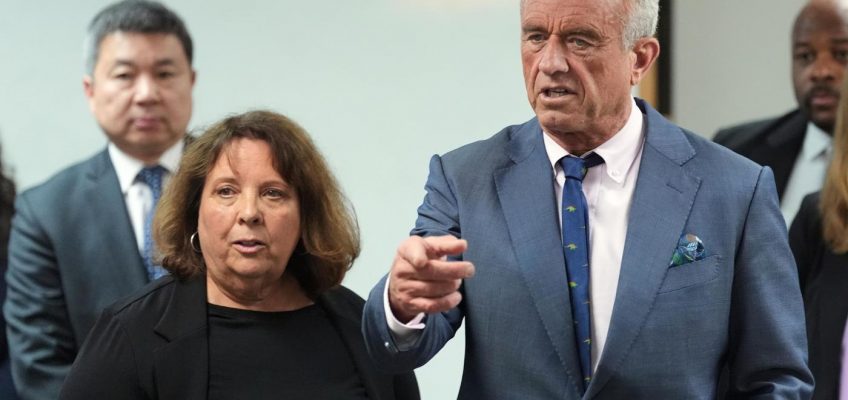Some 10,000 federal health workers lost their jobs earlier this month — among them, a group of regulators who help new medicines get approved. If Health and Human Services Secretary Robert F. Kennedy Jr. doesn’t reverse course, American patients will suffer and half a century of US leadership in pharmaceutical innovation could come to a precipitous end.
Three decades ago, the US lagged Europe in access to new medications. Respiratory drugs, on average, were available to Britons more than five years before Americans; cardiovascular drugs had a three-year lead. Pressured to narrow this disparity, Congress passed a law in 1992 to speed up drug approvals. The new framework allowed regulators to collect fees from drug companies, which vastly increased resources at the Food and Drug Administration for reviews.
The law — the Prescription Drug User Fee Act — has been a notable success. Median FDA review times fell from 26.6 months between 1980 and 1992 to 9.9 months in the decade through 2022. Today, Americans have access to three-quarters of new medicines, and the US has become a world leader in some of the most advanced treatments, including cell and gene therapies. The promise of such innovations — which can, among other medical miracles, target and destroy cancer cells, potentially reverse hearing loss, and enable sickle-cell patients to live without debilitating pain — can hardly be overstated.
Yet US dominance in such medicine shouldn’t be taken for granted. China’s drug industry is racing ahead, thanks to government investment and ambitious regulatory reform (that included aggressive hiring). Once known for supplying raw ingredients and manufacturing copycat drugs, China is now second only to the US in the development of new medicines. In the past three years, the number of drugs in China’s pipeline has doubled. Recent data show almost a third of clinical trials start in China, roughly on par with the US and up from 5% a decade ago.
Against this backdrop, these seemingly indiscriminate job cuts are worrisome. In addition to removing the head of the office that reviewed applications for new medicines, the FDA also has eliminated staff who negotiate user fees with drugmakers. Kennedy has long objected to user fees, arguing that the FDA’s reliance on industry funding — which constitutes almost half its budget — compromises its oversight. This is false: Cases of FDA-approved medications causing patients serious harm remain exceedingly rare. More to the point, the only serious alternative — raising taxes to pay for regulatory staff — is a political nonstarter.
Kennedy’s department said that neither drug reviewers nor inspectors would be cut in this reorganization, and that approvals wouldn’t slow down as a result. Recent reports cast doubt on those claims: For example, a government-wide $1 limit on spending cards has already hamstrung field operations; a pilot program for unannounced foreign inspections, meanwhile, has been paused because the staff who’d once secured translators have been fired. Dozens of employees with cross-cutting responsibilities, including those who wrote guidelines for inspectors or compared results across reviews, are gone.
The pharmaceutical industry — quiet, to date, about Kennedy’s potential impact on their business — now appears concerned: “The rapid and substantial changes at FDA raise questions about the agency’s ability to fulfill its mission to bring new innovative medicines to patients,” a large industry group said after the cuts. Investors have been less ambiguous, with biotech stocks declining sharply after Kennedy’s announcement.
The health secretary has been called to testify before the Senate. He should explain how his cuts will protect American innovation and benefit patients. Otherwise, the public might reasonably conclude that the US is about to squander its hard-won dominance in drug development for no good reason.
— Bloomberg Opinion


Leave a Reply